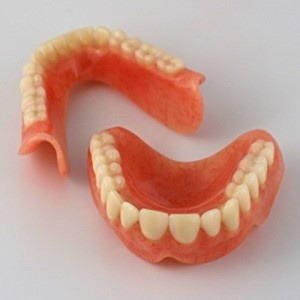Dentures are a popular solution for people who have lost some or all of their teeth, offering an affordable and effective way to restore both function and appearance. In Dubai, where dental care standards are high, Best Teeth Dentures Dubai can be custom-made to fit comfortably and blend seamlessly with your natural smile. However, the process of getting dentures can sometimes involve avoidable mistakes that may lead to discomfort, poor fit, or even complications. Here’s how to steer clear of these common pitfalls and ensure your denture experience is smooth and successful.
1. Not Choosing the Right Type of Denture:
One of the most frequent mistakes people make is not selecting the right type of denture for their needs. There are several types, including:
- Complete dentures for those missing all teeth.
- Partial dentures for those missing some teeth.
- Implant-supported dentures for added stability.
Each type has its pros and cons, and the choice should depend on factors like the number of missing teeth, jawbone health, and budget. It’s essential to consult with your Dubai dentist to understand which option suits your situation best.
2. Failing to Ask About Materials:
The material used to make dentures can significantly impact their durability and comfort. Dentures can be made from acrylic, porcelain, or a combination of materials. Acrylic is lightweight and affordable, but it may wear down more quickly. Porcelain, on the other hand, is more durable and looks more natural but tends to be heavier and pricier. Not understanding the material differences could lead to dissatisfaction later on, so make sure to discuss material options with your dentist and consider your lifestyle and preferences before making a decision.
3. Skipping the Customization Process:
Some patients opt for cheaper, generic dentures that are not fully customized to their mouth. This is a major mistake that can lead to discomfort, slipping dentures, and difficulty eating or speaking. In Dubai, high-quality dental clinics offer custom-fit dentures made using precise measurements of your mouth, ensuring that the dentures not only fit well but also look natural. Avoid the temptation to cut costs by skipping customization — it's a long-term investment in your comfort and oral health.
4. Not Preparing for an Adjustment Period:
Many people expect their new dentures to feel perfect from day one. However, it’s normal to experience some discomfort or difficulty during the initial adjustment period. It may take a few weeks for your mouth to adapt to the dentures. Some common symptoms include sore spots, excessive saliva production, and minor speech issues. Don’t rush to get adjustments too soon — give your mouth time to adapt, but if the discomfort persists, consult your dentist to make necessary changes.
5. Ignoring the Importance of Denture Care:
Proper denture care is crucial for maintaining their functionality and appearance. Common mistakes include not cleaning the dentures daily or using regular toothpaste, which can be too abrasive. Dentures should be cleaned using a soft brush and a non-abrasive denture cleaner to avoid scratches. Additionally, soaking dentures overnight in a cleaning solution helps to keep them moist and prevent bacterial buildup. Ignoring these care steps can lead to foul odors, stains, and even gum infections.
6. Not Scheduling Regular Follow-Up Appointments:
After receiving your dentures, regular follow-up appointments with your dentist are essential to ensure a proper fit and address any issues. Over time, your gums and jawbone may change shape, causing the dentures to loosen. Skipping follow-up visits can lead to uncomfortable, ill-fitting dentures, which can cause sores or even infections. Make sure to schedule and attend regular check-ups, especially within the first few months of getting your dentures.
7. Overlooking Speech and Chewing Practice:
Adjusting to speaking and chewing with dentures takes time and practice. Many patients make the mistake of becoming frustrated too early when they struggle with pronunciation or eating certain foods. You may find it challenging to speak clearly or chew tough foods at first, but with time and practice, these issues typically resolve. To avoid frustration, practice reading aloud and start with softer foods before transitioning to harder-to-chew items.
8. Not Considering Implant-Supported Dentures:
If you experience significant discomfort or instability with traditional dentures, you might benefit from considering implant-supported dentures. These dentures are anchored by dental implants, providing better stability and a more natural feel. While they are more expensive and involve a more invasive procedure, the long-term benefits — including improved comfort, appearance, and function — can be worth it for many patients. Consulting with your dentist in Dubai about this option can help prevent dissatisfaction later on.
9. Assuming Dentures Last Forever:
While dentures are designed to be durable, they don’t last forever. Depending on the material and how well they’re cared for, dentures typically last between 5 to 10 years. Over time, the shape of your mouth changes, and the dentures may no longer fit properly. Neglecting this can lead to discomfort, difficulty eating, and even oral health problems. Regular dental check-ups and timely denture replacements are important to ensure long-term oral health.
10. Neglecting Oral Hygiene:
Many people mistakenly believe that once they have dentures, oral hygiene is less important. However, maintaining good oral hygiene is still essential to prevent gum infections, bad breath, and other oral health issues. Even if you have no natural teeth left, brushing your gums, tongue, and the roof of your mouth with a soft-bristled brush is crucial. This keeps your mouth clean and healthy, reducing the risk of infections.





Comments